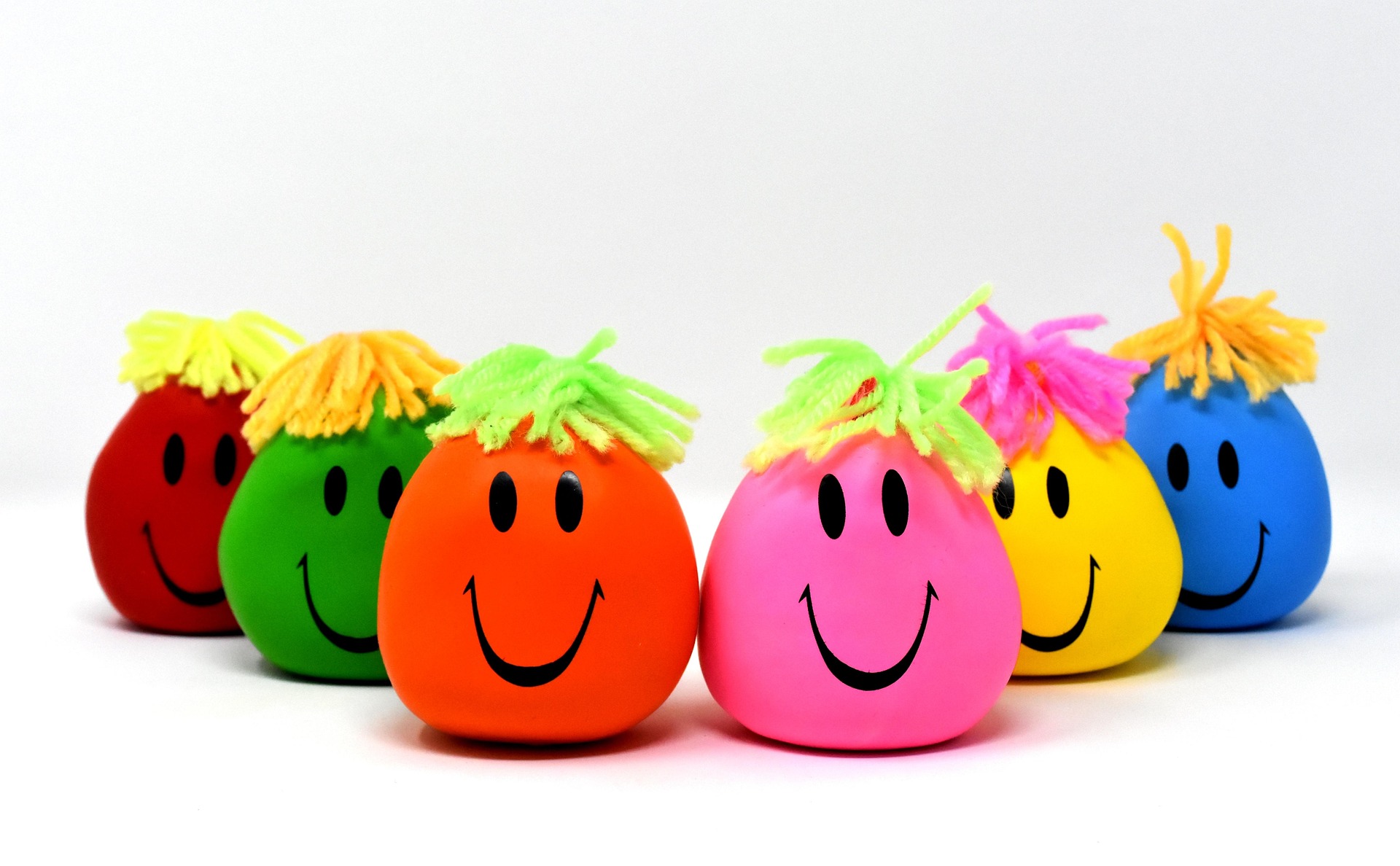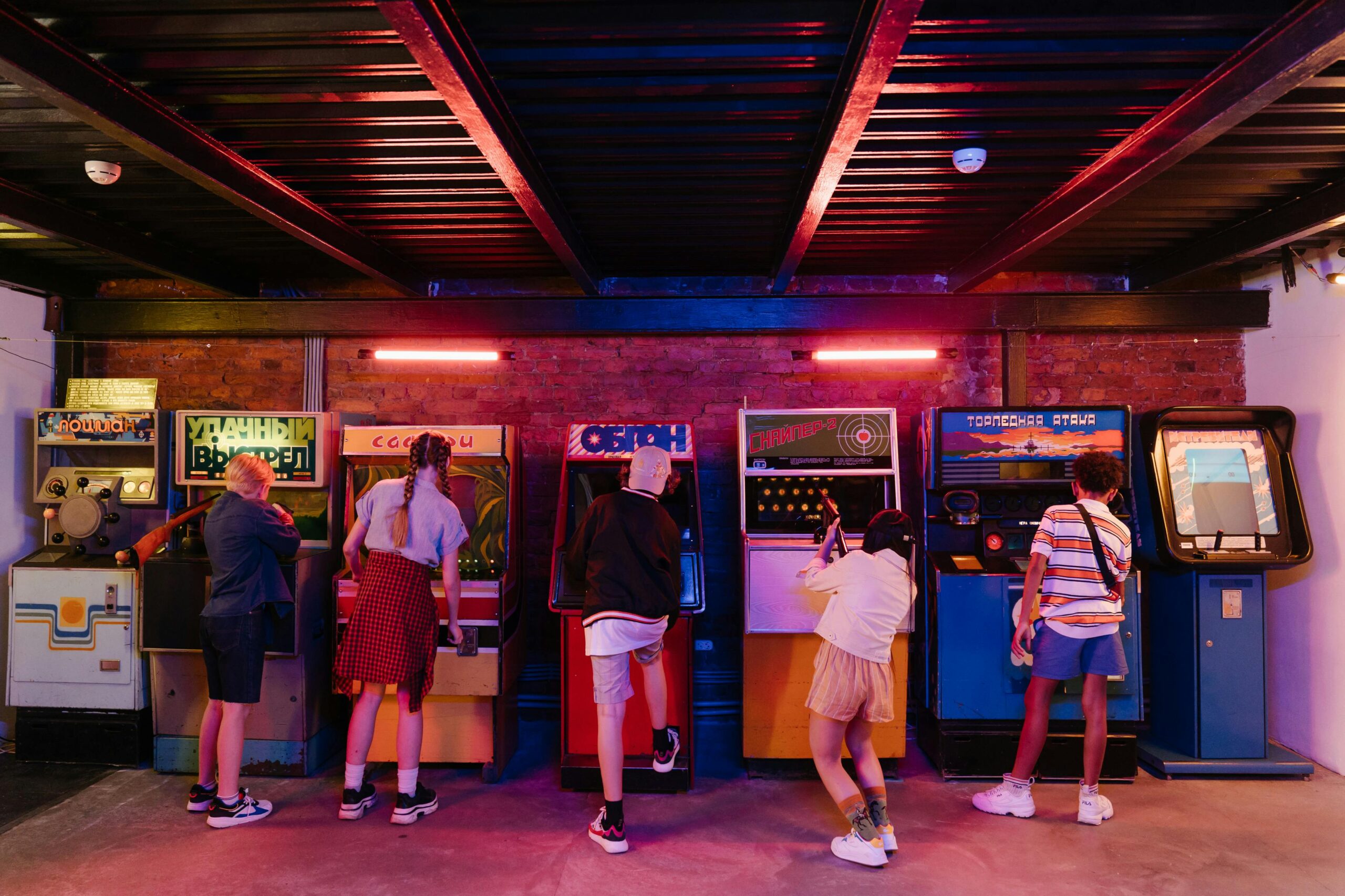Top Wellbeing Games for Adults: Boost Mood, Reduce Stress, and Connect with Others
Wellbeing games for adults have become a powerful way to boost mental health and bring a little more joy into daily routines. I’ve noticed that when life gets busy it’s easy to forget the importance of fun and relaxation. That’s where these games come in—they offer a simple way to reconnect with myself and others while reducing stress.
I love how these activities can turn a regular evening into something special. Whether I’m playing solo or with friends wellbeing games help me unwind and focus on the present moment. It’s amazing how a few minutes of play can lift my mood and make me feel more balanced.
What Are Wellbeing Games for Adults?
Wellbeing games for adults use structured play to support emotional, psychological, and social health. I engage with games like mindfulness puzzles, creative board games, or movement-based challenges that encourage relaxation and positive interactions. Each game type targets specific wellbeing aspects, such as stress relief, improved mood, or social connectedness.
I select wellbeing games for their ability to create positive environments. Examples include gratitude card decks, trivia games focused on resilience, or interactive storytelling sessions that prompt reflection and laughter. Games often incorporate techniques from positive psychology, such as gratitude journaling or problem-solving tasks.
Below, I summarize core game categories and the main benefits for adults:
| Game Category | Example Games | Wellbeing Focus |
| Mindfulness & Relaxation | Guided puzzle apps, coloring | Stress reduction, focus |
| Social Connection | Cooperative board games | Relationship building, empathy |
| Creative & Expressive | Storytelling card sets | Self-expression, reflection |
| Movement-Based | Yoga dice, dance games | Physical health, energy |
Unlike competitive casino games, wellbeing games for adults emphasize collaboration, skill-building, and positive reinforcement over risk or monetary reward. I use these games to create safe spaces that prioritize health, enjoyment, and connection over chance-based entertainment.
How Wellbeing Games Improve Mental Health
Wellbeing games for adults contribute directly to better mental health by promoting calm, building focus, and encouraging meaningful engagement. I see improvements across multiple aspects of mental wellness through consistent participation.
Stress Relief and Relaxation
Wellbeing games create structured activities that support stress management and muscle relaxation. I use breathing games, art-based puzzles, and gentle movement challenges to ease tension. Many apps include guided visualization or slow-paced coordination tasks that lower blood pressure and decrease anxiety levels, with clinical studies noting consistent reductions in self-reported stress scores among participants (NIMH, 2022).
| Game Type | Stress Reduction Mechanism | Typical Duration |
| Breathing games | Regulate respiration, lower anxiety | 5-15 minutes |
| Art-based puzzles | Divert attention, elevate mood | 10-30 minutes |
| Movement challenges | Release muscle tension, boost endorphins | 15-20 minutes |
Enhancing Mindfulness and Focus
Mindfulness-based wellbeing games increase attention span and cognitive resilience. I engage with matching games, guided meditation experiences, and awareness-based board games to sharpen focus. These formats train my mind to stay present and avoid rumination, enhancing memory retention according to recent adult wellness trial data (APA, 2023).
| Mindfulness Game Type | Cognitive Benefit | Example Activity |
| Matching games | Improve concentration | Memory cards |
| Guided meditation apps | Heighten present awareness | Body-scan sessions |
| Awareness board games | Reduce impulsivity | Mindful Moves board set |
Wellbeing games for adults deliver direct mental health benefits, including measurable reductions in stress and increases in mindfulness, when practiced regularly in structured settings.
Popular Types of Wellbeing Games for Adults
Wellbeing games for adults cover a range of structured activities designed to foster health and enjoyment. I’ve organized these into digital wellbeing apps, interactive board and group games, and outdoor movement-based options.
Digital Wellbeing Apps and Video Games
Digital wellbeing games for adults offer accessible options that support mental balance and relaxation. I’ve found that meditation apps, mindful puzzles, and relaxing digital adventures help manage stress efficiently.
| Digital Game/App | Main Feature | Benefit |
| Headspace (App) | Guided meditation | Reduces anxiety |
| Monument Valley (Game) | Visual puzzles | Improves focus |
| Lumosity (App) | Cognitive training | Boosts mental clarity |
| Calm (App) | Mindful breathing exercises | Supports relaxation |
| Journey (App/Game) | Visual story/adventure | Promotes calm |
I utilize these digital tools either solo or with online communities to build daily routines that prioritize mental rest and cognitive growth.
Board Games and Group Activities
Board games and group wellbeing activities bring adults together, building strong connections and creating supportive social spaces. I often see games like Dixit, The Mind, and collaborative puzzle sets promoting trust and empathy.
| Game/Activity | Group Size | Focus Area |
| Dixit | 3–6 | Creative expression |
| The Mind | 2–4 | Cooperative play |
| Pandemic | 2–4 | Team problem-solving |
| Jenga (Mindful Play) | 2+ | Presence and focus |
| Guided Icebreakers | 3–10 | Social connection |
I select board games and group activities to nurture team spirit and improve communication, especially when aiming for lighter moods and positive reinforcement.
Outdoor and Physical Games
Outdoor and physical wellbeing games for adults merge movement with social interaction and mindfulness. I include gentle yoga, nature scavenger hunts, and cooperative sports as examples, as these encourage both physical vitality and shared calm.
| Physical/Outdoor Game | Format | Key Benefit |
| Nature Scavenger Hunt | Small groups | Increases mindfulness |
| Cooperative Yoga Flow | Solo/Partner | Boosts flexibility |
| Tai Chi in the Park | Group | Reduces tension |
| Guided Walking Games | Solo/Group | Stimulates mood |
| Relaxation Frisbee | Pair/Small | Encourages movement |
I recommend these options when aiming for improved mood, physical relaxation, and outdoor engagement, particularly for settings with group or paired participation.
Factors to Consider When Choosing Wellbeing Games
Selecting wellbeing games for adults involves aligning choices with individual needs and practical factors. My approach connects these elements to ensure each game supports mental balance, engagement, and sustained enjoyment.
Personal Preferences and Goals
Personal preferences and goals affect wellbeing game selection. I match game type, format, and activity level to my relaxation or social connection objectives. For example, I choose mindfulness puzzles for solo focus, creativity games for expression, or team-based board games to promote group trust. Table 1 summarizes common wellbeing goals and matching game types.
| Wellbeing Goal | Example Activities | Game Type |
| Stress reduction | Breathing games, calm apps | Mindfulness and relaxation |
| Social connection | Communication challenges | Social and group games |
| Creative expression | Collaborative art puzzles | Creative and expressive |
| Gentle movement | Light yoga, walking games | Movement-based |
Accessibility and Ease of Use
Accessibility and ease of use ensure each wellbeing game remains inclusive and stress-free. I select games with clear instructions, minimal setup, and adaptable formats for different ability levels. Digital apps provide instant play, while tactile board games can suit mixed groups if the rules and physical pieces are easy to manage. Examples include color-coded tiles for vision support or short rounds for tight schedules. Table 2 details accessibility features relevant to wellbeing games.
| Feature | Application Example | Benefit to Players |
| Simple instructions | Guided meditation apps | Quick onboarding |
| Short duration | Five-minute puzzles | Flexible playtime |
| Adaptive rules | Scalable team games | Inclusive participation |
| Accessible materials | Large-font cards | Support for impaired vision |
Each of these considerations improves enjoyment, inclusivity, and overall wellbeing when I select games designed to boost mental health.
Top Recommendations: Wellbeing Games for Adults
I recommend structured activities that blend mindful relaxation, creativity, and positive interaction. My suggestions span digital, group, and offline formats to suit different preferences and wellbeing objectives.
Best Digital Wellbeing Games
I list effective digital wellbeing games and apps that support mental balance and relaxation:
| Game/App | Focus Area | Key Features | Platform |
| Calm | Guided Meditation | Breathing exercises, sleep stories | iOS, Android |
| Headspace | Mindfulness | Meditation courses, daily reminders | iOS, Android |
| Monument Valley | Mindful Puzzles | Visual puzzles, soothing soundtracks | iOS, Android |
| My Oasis | Relaxation | Interactive environments, calming music | iOS, Android |
| SuperBetter | Resilience | Challenge-based, positive reinforcement | iOS, Android |
I recommend Calm for guided relaxation and Headspace for beginners seeking mindfulness routines. Monument Valley and My Oasis provide puzzle-based engagement and ambient environments to promote focus. SuperBetter integrates practical challenges, boosting daily resilience and positivity.
Great Offline and Group Options
I explore offline and group wellbeing games that foster social connection and creative expression:
| Game/Activity | Core Benefit | Description | Ideal Setting |
| Dixit | Creative Expression | Story-driven, uses imaginative cards | Small groups |
| Pandemic | Team Cooperation | Collaborative, global crisis simulation | Groups, families |
| Yoga Dice | Gentle Movement | Combines chance with easy yoga poses | Solo or with others |
| Mandala Art Kits | Artful Mindfulness | Coloring intricate patterns for relaxation | Solo or social |
| Gratitude Circle | Social Connection | Guided sharing of positive experiences | Groups, teams |
I select Dixit and Pandemic for interactive play that builds trust and communication. Yoga Dice introduces gentle movement into group routines. Mandala Art Kits support quiet focus and self-expression. Gratitude Circles prompt sharing and increase group cohesion.
Wellbeing games for adults include a broad range of digital and physical activities. I use these games to target mindfulness, creativity, cooperation, and movement, matching preferences to fit specific wellness goals.
Tips for Incorporating Wellbeing Games Into Daily Life
Practical Scheduling Strategies
I consistently integrate wellbeing games into existing routines for better adherence. Early morning routines often include a five-minute breathing puzzle, while evenings favor collaborative board games such as Dixit for creative relaxation. Lunch breaks present ideal moments for quick movement-based challenges like stretching games. Repetition ensures these activities become intuitive, not disruptive.
| Time of Day | Wellbeing Game Example | Benefit |
| Morning | Breathing puzzle (digital app) | Calm and focus |
| Lunch break | Stretching challenge | Physical vitality |
| Evening | Board game (Dixit) | Creativity and connection |
Creating Inclusive Environments
I emphasize accessibility by choosing games requiring minimal setup and allowing flexible participation. Movement-based games feature chair modifications for mobility needs, and digital puzzles include screen-reader compatibility to cover varied participant preferences and abilities. I keep instructions clear and supplies visible for seamless participation.
Setting Clear Wellbeing Goals
I align game selection with daily wellness objectives. For stress reduction, mindfulness games such as Calm or Headspace serve best. I choose movement or creative games, like art-based puzzles, for increasing energy or mood. Clarity in purpose ensures each activity supports my overall wellbeing plan.
| Wellbeing Goal | Game Type Example | Frequency |
| Stress Reduction | Guided meditation app | Daily |
| Social Connection | Cooperative board game | Weekly |
| Creativity | Art-based puzzle | 2-3x per week |
| Physical Activity | Gentle yoga game | 3-4x per week |
Encouraging Social Collaboration
I invite friends, colleagues, or family for shared wellbeing sessions, choosing cooperative games like Pandemic for team-building or nature scavenger hunts for outdoor connection. Scheduled group play enhances accountability and mutual engagement, further reinforcing the benefits of these activities.
Tracking Progress and Adjusting
I monitor mood, focus, and engagement after each session using a simple log or digital tracker. If I observe decreased enjoyment or effectiveness, I modify the game format or frequency. Periodic reflection ensures the strategy stays aligned with evolving wellness needs.
Conclusion
I find that making time for wellbeing games can be one of the most rewarding choices for my mental health and happiness. These activities fit easily into my routine and offer a simple way to unwind, reconnect, and boost my mood.
By exploring different types of wellbeing games, I can tailor my experience to what I need most—whether that’s relaxation, creativity, or social connection. With a little intention and the right games, I’m able to nurture my wellbeing and enjoy a more balanced, joyful life.
Frequently Asked Questions
What are wellbeing games for adults?
Wellbeing games for adults are structured activities designed to promote mental, emotional, and social health. These games often focus on relaxation, mindfulness, creativity, social connection, or gentle movement, helping adults reduce stress and improve overall mood.
What are the main benefits of wellbeing games?
Wellbeing games help reduce stress, boost mood, improve focus, and support meaningful social connections. They also promote relaxation, encourage mindfulness, and can lead to better emotional balance and mental health when played regularly.
How are wellbeing games different from regular or casino games?
Unlike regular or casino games, wellbeing games prioritize collaboration, skill-building, and positive reinforcement rather than competition or chance. They focus on creating safe, enjoyable spaces for relaxation and connection, rather than winning money or beating opponents.
What types of wellbeing games are available?
The main types include mindfulness and relaxation games, social connection games, creative and expressive games, and movement-based games. Each type offers unique benefits for stress relief, creativity, social engagement, or gentle physical activity.
Can wellbeing games be played alone or do they require a group?
Many wellbeing games can be played both alone and with others. Digital apps and solo puzzles are ideal for independent relaxation, while group board games and collaborative activities foster social connection.
Are there digital options for wellbeing games?
Yes. Many digital apps and games, like Calm and Headspace, provide guided meditation, mindful puzzles, and relaxation exercises specifically designed to support mental wellbeing.
What are some recommended board or group wellbeing games for adults?
Popular options include Dixit, which encourages creative expression and conversation, and Pandemic, which promotes teamwork and communication. These games are excellent for strengthening social bonds and reducing stress in group settings.
How do I choose the right wellbeing game for my needs?
Consider your personal goals, preferences, and activity levels. Think about whether you’re looking for stress reduction, creativity, social interaction, or movement, and select games that match those priorities and are accessible for your situation.
How can I make wellbeing games a regular part of my routine?
Schedule specific times for playing, such as morning mindfulness puzzles or evening group games. Choose easy-to-set-up games, involve friends or family, and set clear goals to maintain consistency and boost motivation.
Are wellbeing games suitable for everyone?
Most wellbeing games are inclusive and can be adapted to various ability levels and preferences. Look for options with accessibility features to ensure everyone can participate comfortably and benefit from the experience.



